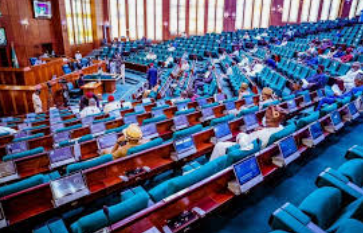The House of Representatives Committee on Customs and Excise expressed strong disapproval of the failure of the Comptroller Generals of the Nigeria Customs Service and the Nigeria Immigration Service to comply with its invitation to appear before the committee. This summons was part of an ongoing investigation into the concession of the e-Customs project to the Trade Modernisation Project and the role of Webb Fontaine within this framework. The committee emphasized its constitutional authority under Section 88, which empowers the parliament to summon individuals and agencies to provide clarifications on governmental operations. The absence of the agency heads and the Minister of Interior, who was reported to be out of the country, was deemed a significant impediment to the committee’s work.
The committee’s chairman, Leke Abejide, underscored the importance of hearing directly from the heads of the agencies and the minister, as they were the key individuals capable of providing the necessary information and insights. He emphasized that the committee was undertaking this investigation on behalf of the government and required the cooperation of these critical stakeholders to effectively fulfill its mandate. Members of the committee echoed Abejide’s concerns, citing the constitutional provisions that grant parliament the power to compel appearances. Olumide Osoba specifically referenced Section 88 of the Constitution, which empowers the legislature to summon any individual to testify before it.
Awaji-Inombek Abiante, another committee member, viewed the non-appearance as a deliberate act of disrespect towards the parliament. He argued that this refusal to cooperate undermined the authority of the legislative body and suggested that if the concerned parties failed to appear at the subsequent hearing, the committee should exercise its powers to recommend their removal from office. This strong stance reflected the committee’s determination to ensure accountability and respect for its investigative authority.
The committee’s investigation has two primary focuses. Firstly, it aims to scrutinize the modernization of the Customs Service, with a particular emphasis on enhancing government revenue generation. Secondly, it seeks to address crucial national security concerns. Chairman Abejide highlighted the importance of both aspects, recognizing that efficient customs operations are essential for revenue collection, while effective immigration services are vital for maintaining national security. He acknowledged the demanding schedules of the lawmakers but stressed their commitment to this crucial investigation. Due to the absences, the hearing was postponed, likely to be rescheduled after the passage of the 2025 budget proposal.
The committee’s investigation into the e-Customs project is particularly significant given its implications for trade facilitation and revenue generation. The project aims to modernize and streamline customs processes through the implementation of electronic systems. This move towards digitization is expected to improve efficiency, reduce delays, and enhance transparency in customs operations. Understanding the details of the concession agreement, including the role of Webb Fontaine, is crucial for the committee to assess the project’s effectiveness and potential benefits for the nation.
Furthermore, the investigation holds broader significance for governance and accountability in Nigeria. The committee’s insistence on the appearance of key officials reflects a commitment to holding government agencies responsible for their actions. By scrutinizing the e-Customs project and the involvement of private entities, the committee aims to ensure transparency and prevent potential irregularities. This proactive approach is crucial for fostering public trust and promoting good governance. The outcome of this investigation could have implications for future public-private partnerships and the broader framework for managing government concessions.














